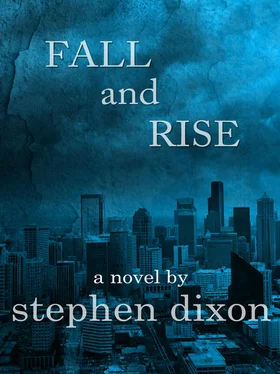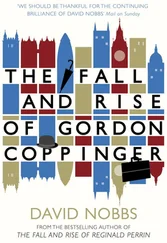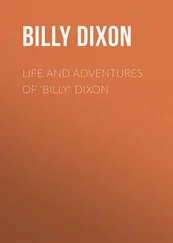Stephen Dixon - Fall and Rise
Здесь есть возможность читать онлайн «Stephen Dixon - Fall and Rise» весь текст электронной книги совершенно бесплатно (целиком полную версию без сокращений). В некоторых случаях можно слушать аудио, скачать через торрент в формате fb2 и присутствует краткое содержание. Год выпуска: 2013, Издательство: Dzanc Books, Жанр: Современная проза, на английском языке. Описание произведения, (предисловие) а так же отзывы посетителей доступны на портале библиотеки ЛибКат.
- Название:Fall and Rise
- Автор:
- Издательство:Dzanc Books
- Жанр:
- Год:2013
- ISBN:нет данных
- Рейтинг книги:5 / 5. Голосов: 1
-
Избранное:Добавить в избранное
- Отзывы:
-
Ваша оценка:
- 100
- 1
- 2
- 3
- 4
- 5
Fall and Rise: краткое содержание, описание и аннотация
Предлагаем к чтению аннотацию, описание, краткое содержание или предисловие (зависит от того, что написал сам автор книги «Fall and Rise»). Если вы не нашли необходимую информацию о книге — напишите в комментариях, мы постараемся отыскать её.
Fall and Rise — читать онлайн бесплатно полную книгу (весь текст) целиком
Ниже представлен текст книги, разбитый по страницам. Система сохранения места последней прочитанной страницы, позволяет с удобством читать онлайн бесплатно книгу «Fall and Rise», без необходимости каждый раз заново искать на чём Вы остановились. Поставьте закладку, и сможете в любой момент перейти на страницу, на которой закончили чтение.
Интервал:
Закладка:
“In a minute.”
I go back to the living room, turn over the record, look at the two walls filled from ceiling to floor with books.
“No, you listen to me once this year,” he yells in the bedroom.
Something new: each bookshelf is labeled. Poetry, Novels A-D, Novels E-J, Short Stories, Antiquities, Literary Criticism, Deutsch und Franzosisch, and half a wall of just art hooks: cocktail-table size, regular size, miniatures, some with spines hundreds of years old. Must be five hundred of them, and half it seems on primitive art. I should ask him why so many Cycladic pieces — my favorite period ever for stone — have women with their arms crossed over their flat stomachs. Good guess would be fertility or breeding, but I want something more than my own spec. I pull out an enormous book called Dubuffet , whom I’ve taken-to lately — what was it he recently said in a newsmagazine comparing art to literature: that art is a hundred years advanced over lit, or was it lit over art? But poetry. Dubuffet goes back. Too bulky a book to put on my lap and turn the pages of so late. But that’s what I’d like right now: a simple pastoral nineteenth-century English poem to go along with my lightmindedness and the guitar and flute. I start on the top poetry shelf, but a book on the short-story shelf above it catches my eye. Krin. Daniel. By. Translated by Daniel Krin. I can’t believe it. I take it out. Modern Japanese Short Stories, translated and with an introduction by Daniel Krin . Reputable small press. Softcover. How’d Peter end up with it? Same Krin? I turn it over. Two-by two-inch photo of him in a crewneck sweater, looking a little balder than he did tonight, hair windblown or just uncut, homecut or messed up, what look like West Side brownstone terraces behind him, so taken from a terrace several stories up, trying to smile but looking as if he’s squirming on the pot. Photo by Rena Moscow. Not one of the well-known literary photogs. Probably a good friend at the time or a cousin or niece. Krin: Moscow. Both could be Russian-Jewish names, Krin for Krinsky I’d think. Nothing much about him under the photo or anything inside. NYC’s public schools and CCNY, but no mention of a postgraduate degree or university teaching, which could mean he has none or never taught or no place he’s especially proud of or this press thought would help sell the book if it listed it, but whom would the NYC public schools appeal to? Among his other works: Songs of Ancient Korea: an anthology of poems in the sijo form , whatever that is, but one of the best university presses published it, and by this same press: Poems and Tales of the Northwest American Indian and Pueblo Ritual Poetry . So he’s an orientalist of sorts, with a side interest, because of the Mongoloid linkage and frozen Bering Strait, in American Indian literature, or maybe the reverse, last one first, and poetry over fiction. How old is he and his book? Copyright page. 1935—Older than I thought by about six years, though the photo makes him look fifty, even if it had to have been snapped more than four years ago when this book was published. Probably has had a book published since and got a teaching job and maybe his doctorate. Dedication page. “To my mother Pauline Saffner Krin, who helped support me through this & other works.” I look through the short-story shelf and the poetry and anthropology shelves, but there’s nothing else by him. I wouldn’t have taken him for a translator or anthologist or even someone much interested in literature. More as what? Because of his wide chest and bull neck and that Diana met him at an artists’ colony: a sculptor; an erector or puttogetherer of monumental steel-crossbeam constructions through the use of pulleys and tackles and an acetylene torch, or perhaps an action painter a little late for that scene. In other words, a moderately intelligent laborer or spontaneous stroker of artworks rather than an artful definer of them. I turn to the introduction. “Modern, in modern Japan, seems to mean—”
Peter comes in. “Good, you’ve kept yourself busy. Sorry about the phone. Find a book you like?”
“That’s what I want to ask you. Just bought it because you were interested?”
“Let me see — That one. Was going with a very wealthy Japanese journalist — I’ll tell you why I mention her wealth — a short time after we broke up, and she gave it to me. Along with a book”—he pulls one off the Gallimaufry shelf—“on how to teach yourself Japanese in three easy weeks, as she wanted to buy us tickets to Japan together soon as I could fit it into my work plans. Didn’t work out.” He hands me the language book. “Got to know one word, but not from that. Soshi. Small. Or toshi. She said she was a little above average height by Japan’s standards, but here was considered tiny, and compared to me, a pygmy, so she gave herself that name for me to use. Not toshi or soshi. Something else, and I think the feminine version of it. I called her it once — was very embarrassed doing it — and though I told her it was thought an insult to be called that here, bright as she was she didn’t mind and she even laughed. Moshi. Skoshi. I think the last one’s it. She also gave me a book of Japanese poems—”
“By the same translator?”
“Who’s that?” Looks. “Never heard of him. The poems were done by the famous one. Been around for years. A very dear old geezer who once did a catalogue intro on Japanese rock gardens for the museum.”
“But it’s so bizarre you have this man’s book. I met him at Diana’s tonight. I thought he was a sculptor or lumberjack.”
“Take it then. I read one story and got bored. I’m not saying it was your friend’s fault. I simply don’t like Japanese fiction, modern or otherwise. Take the language book too.”
“Why would I want it?”
“Did you talk to him much? Is he married? There was no chance of his calling you — nothing like that? It was just routine cocktail party hooey?”
“No, he said he would call, but—”
“Then he will. Why wouldn’t he? So take the language book — take both books and anything else here that’s Japanese. Not the art books and dolls. Then when he calls, say a few words in Japanese to him. Maybe to perplex him or as a joke. Or say hello in Japanese the first time he calls, then switch to English. And why not some Japanese art books? The ones made there, no matter of whose, are as beautiful as anything the Dutch produce, and I can always get replacements at fifty percent off. First that poetry book.” He goes through the shelves. “Right — she borrowed it because it had the en face originals on some poems she was suddenly dying to read, and then we broke up and she never returned it. No great loss. But the art books—”
“This is silly. I don’t want any.”
“But I want you to have them. This is our Japanese night. I’ll even get out sake and warm it. I have the special cups.”
“It’ll make me sick again.”
“Then beer. Japanese is the best for an upset stomach or to keep one away. Very mild, made from rice. I have some in the fridge.”
“Still from those Japanese journalist days?”
“No, though I did learn the upset stomach remedy and preventive from her and I got to like their beer even more than I had before I met her. Japanese and Dutch beer. Never made the connection between beautiful art books and great beer before, but there it is — though I never dated a Dutchwoman for more than a night nor heard of a Dutch wine made from cheese. Have you?”
“I’ll take the Japanese stories but that’s all,” and I put the language book back on the shelf.
“But I insist. And a painting book.” He pulls out a book that must be two feet long and three inches thick. “This is for you. Astonishing color reproductions. Now you can’t refuse a present. Serendipity call it. You meet this Japanese man—”
Читать дальшеИнтервал:
Закладка:
Похожие книги на «Fall and Rise»
Представляем Вашему вниманию похожие книги на «Fall and Rise» списком для выбора. Мы отобрали схожую по названию и смыслу литературу в надежде предоставить читателям больше вариантов отыскать новые, интересные, ещё непрочитанные произведения.
Обсуждение, отзывы о книге «Fall and Rise» и просто собственные мнения читателей. Оставьте ваши комментарии, напишите, что Вы думаете о произведении, его смысле или главных героях. Укажите что конкретно понравилось, а что нет, и почему Вы так считаете.












